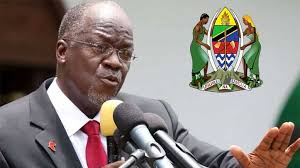IF you wish to know what is really happening on the ground in Tanzania do not expect it from the country’s local media. Do not even bother reading western media which, until recently, had little interest and, as a result, they were, and still are, less informed about Tanzania.
Even with the currently developing interest of western media about Tanzania, it is clear they know and publish less than they should. Of course, President John Magufuli’s impulsive and brutal leadership has contributed enormously to this recent interest, resulting into news that has eroded a good name Tanzania used to enjoy internationally.
Within Tanzania, real news is never reported. As the best strategy, just get out to meet and talk to ordinary people, do direct observation and do first-hand research. Even after all this, you will be very lucky if you publish your true findings without facing sedition charges in a court of law.
Unfortunately, local media in Tanzania have been forced to either shun news or comprise and publish government propaganda. At most, they do not publish anything serious and critical for fear of putting themselves in trouble with authorities.
In the last three years of John Magufuli’s presidency, draconian rules have been fiercely used against free press like never before. Through the Media Services Act 2016, the government has coined its one interpretation of a journalist. In Tanzania, you are practically not a journalist unless accredited by their government.
No publication will see light of the day unless licensed by the department of information. Any publication that tends to criticise the government risks its license being revoked. In order to survive, most publishers have been forced to stoop so low. They survive by compromising to government pressure.
This state of affairs has created a room for regime surrogates and stooges registering propaganda media that they use to smear opposition and government critics. They take the lion’s share of government adverts – which most of the media have been denied as a means to suffocate them financially. As a result, journalism is becoming one of the worst jobs to do in Tanzania.
Bloggers are not an exception. The government has to approve you before you pay an equivalent of $900 as registration fee for a website or blog. The same applies to online radio and television.
Foreign media hardly get to know what is happening in Tanzania because many of them do not have bold stringers to file important and big stories. Even if they did, they would be risking the same wrath and laws used against everyone else.
It is even harder for foreign journalists to do investigative reporting on Tanzania based in the country. The authorities will never let you free. President Magufuli wishes the world to swallow his cheap propaganda about his supposedly anti-corruption initiative which, having witnessed his style of leadership, does not, in fact, exist. He is as corrupt as those he is pretending to fight and arrest.
He wants to silence everybody in the pretext of wanting everyone to support his “development agenda.” Just because the government is constructing roads, a few bridges, a stand gauge railway and a few other projects, Magufuli’s thinks there is no reason for anyone to criticise his government.
This is bizarre politics that has left researchers, academicians, journalists, artists, activists, and even religious leaders facing hard times particularly if they happen to think independently.
What does all this mean? The list of casualties is becoming longer and longer – democracy, truth, integrity, creativity, professionalism, peace, freedom, fair competition, investment, and security and many others.
Threats notwithstanding, however, one thing is certain – patriotic voices will never give up. And this is one of them.










